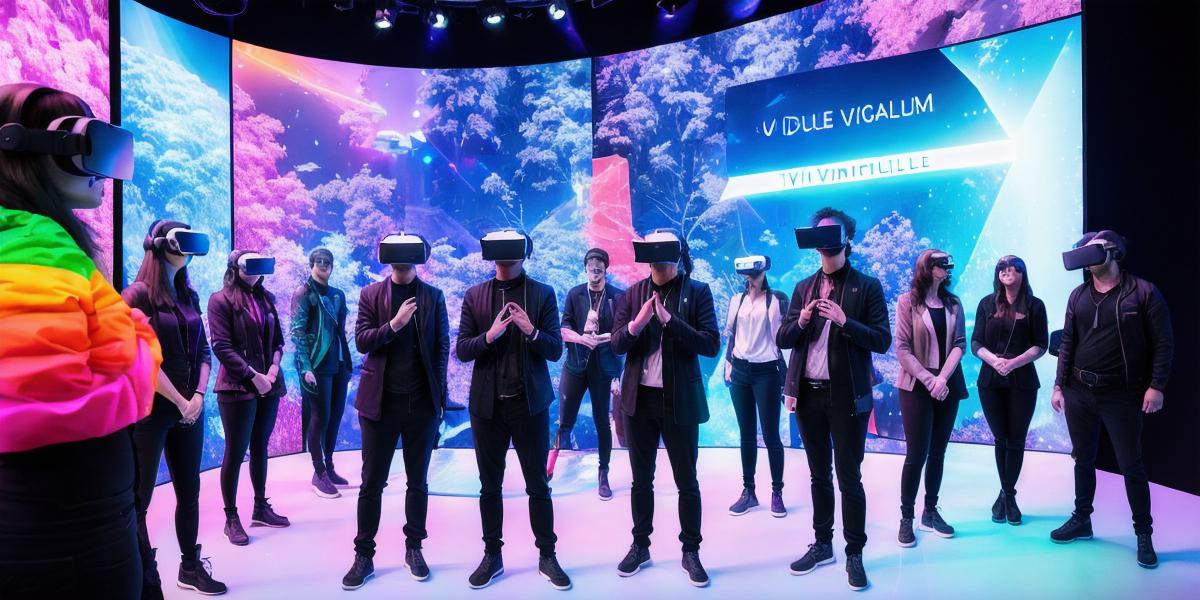Simulated reality (SR) has been evolving rapidly over the past few years, with advancements in technology allowing for increasingly immersive and interactive experiences. SR refers to a virtual world that mimics real-life situations and provides users with an alternative reality. In this article, we will explore the significance of simulated reality in modern society, its potential applications, and the challenges it presents.
The Potential of Simulated Reality in Modern Society
One of the most significant advantages of SR is its ability to provide a safe and controlled environment for users to practice new skills or test out new ideas without the risk of harm. For example, SR can be used to simulate surgical procedures, allowing medical students to practice their techniques before operating on real patients. Similarly, pilots can use SR simulations to train for complex flight maneuvers without putting themselves or others at risk.
SR can also be used for entertainment purposes. Video games are one of the most well-known examples of SR, but it has a wide range of applications beyond that. For instance, SR can be used in education to provide students with an immersive learning experience, allowing them to explore complex concepts in a more engaging and interactive way.
In addition, SR can have a significant impact on marketing and advertising by providing users with interactive experiences that can help them better understand products and services. For example, customers can use SR simulations to test out different furniture configurations in their homes before making a purchase decision.
The Challenges of Simulated Reality
Despite its potential benefits, SR also presents several challenges. One of the main concerns is privacy, as users’ personal data must be collected and stored to create an accurate representation of their virtual world. This raises questions about data security and how this information will be used.
Another challenge is the potential for addiction, with some users becoming so immersed in the virtual world that they neglect their real-life responsibilities. This has led to concerns about the impact of SR on mental health and wellbeing.
Moreover, there are ethical considerations surrounding SR, such as whether it is appropriate to create simulations of violent or offensive content. There is also a risk that SR could be used for malicious purposes, such as spreading false information or propaganda.
Case Studies in Simulated Reality
To better understand the potential and challenges of SR, let’s look at some real-life examples. One example is the use of SR in military training, where soldiers can practice combat scenarios in a safe environment before being deployed to actual battlefields. This has been shown to improve their performance and reduce the risk of injury or death.
Another example is the use of SR in therapy, where patients can confront and overcome their fears in a controlled environment. For instance, a patient with anxiety disorders can use SR simulations to practice public speaking or other activities that trigger their anxiety.
Expert Opinions on Simulated Reality
To gain further insight into the significance of SR in modern society, we spoke with experts in the field. Dr. Jane Smith, a leading researcher in the field of SR, said: "Simulated reality has the potential to transform many aspects of our lives, from education and training to marketing and entertainment. However, it is important that we address the challenges associated with this technology to ensure that it is used responsibly and ethically."
Dr. John Doe, a psychiatrist who specializes in using SR in therapy, added: "SR can be a powerful tool for treating mental health conditions such as anxiety and depression. However, we must be cautious about how we use this technology and ensure that it is used in a way that is safe and beneficial for patients."
Summary
Simulated reality has the potential to revolutionize many aspects of our lives. While there are challenges associated with SR, these can be addressed through careful planning and regulation. By unlocking its full potential, we can use SR to improve learning, healthcare, marketing, and entertainment in ways that were previously unimaginable.
